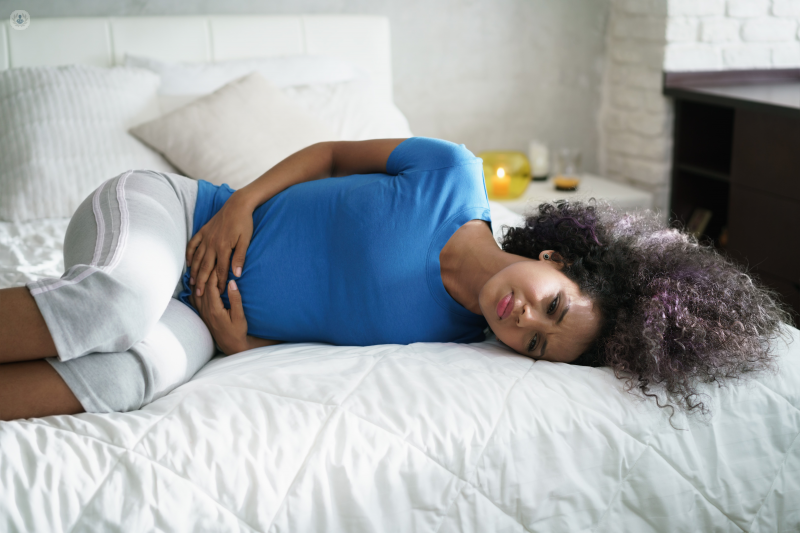How to deal with period cramps and pain
Written by:Period pain is not pleasant. On a monthly basis, many women experience period cramps – some worse than others. So what causes this pain and how can this be dealt with? Leading gynaecologist Mr Raymund Devaraj has the answers.

What causes period pain?
Period pain or dysmenorrhoea (“dys” – painful; “meno” – monthly; “rrhea” – flow) is defined as pain just before and during menstruation. A large percentage of women are affected (ranging from 15-90%) and it can be severe in up to 30% of women, affecting their quality of life. They are broadly divided into two categories primary or secondary to another cause e.g.
Just before menstruation, the level of the hormone progesterone drops if no fertilisation has occurred. This causes the release of a chemical called prostaglandin. Prostaglandin causes the blood vessels that supply the lining of the womb to contract and stop the blood flow to the lining, causing it to shed. This shedding occurs at different places in the lining over the menstrual period and is associated with bleeding.
The prostaglandin also causes the muscle of the uterus (which is made up of a type called smooth muscle) to contract, which helps expel the lining. Also, the uterine muscle is stretched by the blood in the uterus, which distends the uterine muscle which also causes it to contract, forcing the contents out of the uterus. This contraction is described as period cramps.
Why do periods hurt so much for some people?
It is not really known why some women experience more severe period pain than others. It is thought that it may be due to a higher level of chemical prostaglandin in some women, causing more symptoms. Every woman experiences the pain differently. For some, it’s lower abdominal pain while for others, it can be backache or even pain in their thigh.
In secondary period pain, it may be due to other conditions, such as endometriosis/adenomyosis, fibroids or pelvic inflammatory diseases.
Can periods cause migraines?
Yes, about 10% of women suffer from a migraine that is related to their periods. Most commonly, this is just before the start of a period and is thought to be due to the level of the hormone oestrogen falling, which occurs before menstruation. The release of prostaglandin is also thought to be related to menstrual migraines.
How do I stop period cramps/pain?
Unfortunately, it is not possible to stop period pains or cramps; however, it is possible to control them.
Is there any medication I can take?
There are various treatments available that help to reduce period cramps. Non-steroidal anti-inflammatory (NSAID) drugs such as ibuprofen taken at the start of menstruation for 1-2 days help in reducing the action of prostaglandin. It is important to note that people with asthma, heart disease, liver disease, bleeding disorders, and gastrointestinal disorders such as bleeding ulcers may not be able to take the drug and need to seek advice from their GP before starting them. Taking paracetamol can also help if you are unable to take NSAIDs or if the NSAID is not working well enough.
Contraceptive pills – especially the combined oral contraceptive pill – can be helpful. The progesterone-only pill, the progesterone implant, the Depo Provera injection and the progesterone intrauterine coil have also been found to help reduce period pain and blood menstrual flow for patients who can’t take the combined pill.
Complementary measures such as a hot water bottle (be careful not to burn yourself!) or TENS (transcutaneous nerve stimulation) can be helpful.
Reducing smoking, mild exercise, dietary supplements such as vitamin B1, and acupuncture may have some benefit, but there is a lack of good evidence for them.
What should I do if I have very severe pain?
Try taking the medication mentioned above if you have no contraindication to taking them. Try modifiable factors, such as exercise, dietary supplements, and reducing smoking to see if it helps.
When should I see a specialist about my period pain?
If the above treatment doesn’t make any improvement in 3-6 months, you will need to see your GP or a gynaecologist.
To book an appointment with Mr Devaraj, visit his Top Doctors profile.


